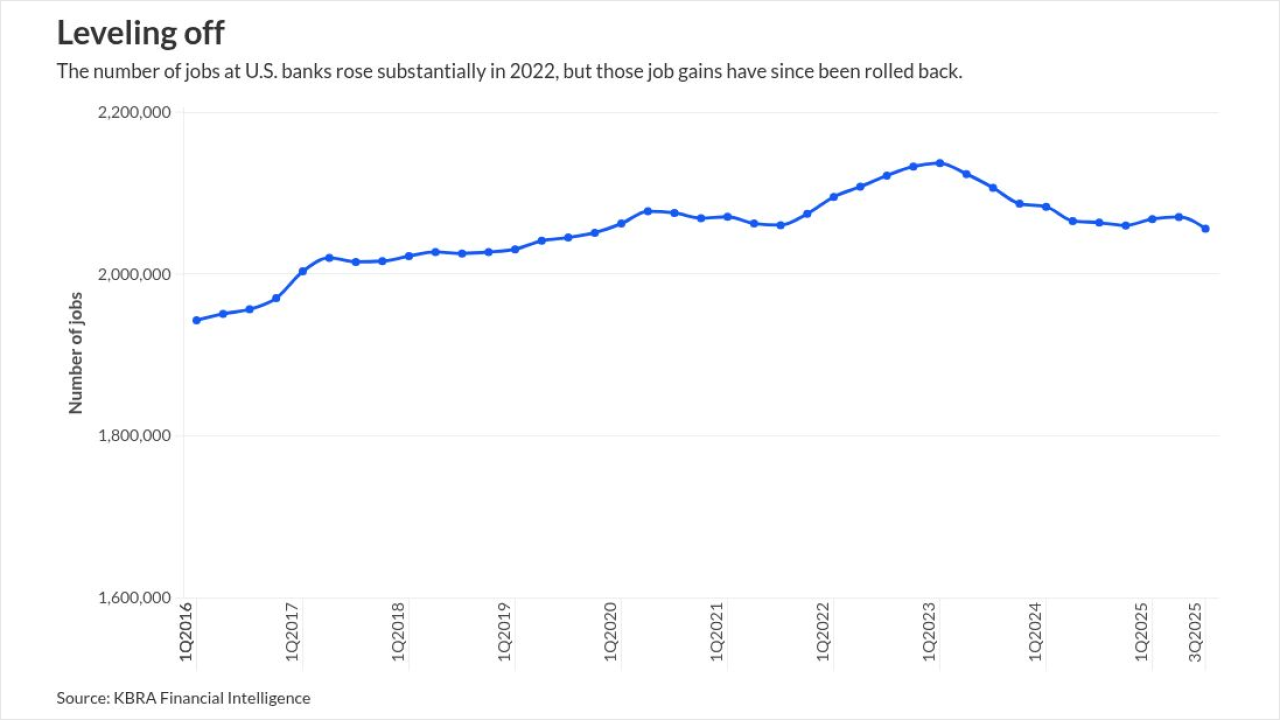Stress levels and mental fatigue throughout banking organizations over the past two years have been as high as most folks can ever remember in their careers.
That’s a reason I continue to suggest to leaders that concerted efforts on their parts to lighten moods and encourage humor whenever possible are not just appropriate, but wise leadership.
Peter Drucker once said, “Manners are the lubricating oil of an organization. It is a law of nature that two moving bodies in contact with each other create friction. This is as true for human beings as it is for inanimate objects.”
I’ve always believed he was (as usual) spot-on with that statement. I’ve also humbly suggested that while manners are a lubricating oil of business, humor in the workplace is equally valuable in keeping teams from burning out.
I’m always struck by how antsy some people get at even the idea of promoting humor and laughter in the workplace. I suppose some visualize the consistently inappropriate Michael Scott character from "The Office."
Obviously, that is not the role model to imitate. But it’s fascinating to consider how many misperceptions many hold about humor and laughter in professional environments.
Consider: All you need to do to get folks to stop outwardly enjoying whatever they are doing in the workplace is to announce, “Hey, get to work!” That statement is universally known to mean knock off that smiling and laughing stuff.
After pointing this out to leaders, I suggest they talk to a surgeon, or pilot, or police officer, or any number of people who work in challenging and stressful jobs. They will tell you that humor and laughter are, indeed, present on their jobs.
Clearly, there are elements of their jobs that demand total focus and seriousness in the moment. Humor, however, helps them avoid mental burnout.
Mayo Clinic research has found that laughter enhances your intake of oxygen, increasing the brain’s release of endorphins. It also stimulates circulation and relaxes muscles, which helps to reduce some of the physical symptoms of stress.
And as the late, great Ron Popeil would say, “But, wait … there’s more!” If the physical and mental health benefits were not enough, the impact on team cohesiveness and customer engagement can be profound.
Researchers have also found that the relaxation that results from laughter inhibits the biological fight-or-flight response. Laughter suggests trust in one’s companions. Laughter fosters a feedback loop that increases social bonding.
I’ve shared with managers that I’ve learned to look for easily detectable traits when observing teams in branches and back offices over the years. Team members who may be outwardly polite with each other but seldom smile and laugh together tend to have poorer team harmony.
I’m not suggesting that happy, cohesive teams are yukking it up all day. If people are not comfortable enough to laugh with each other, however, their trust levels tend to be low.
We humans have a natural desire to be around people and in places that put us at ease. This is true for co-workers as well as customers.
The customer from whom you elicit a genuine smile or chuckle, or share yours with them, stores that positive impression in their mind. It’s a more powerful and lasting memory than most marketing pieces ever generate.
That said, it is the tone, behaviors and even facial expressions of leaders that allow humor and goodwill to flourish … or cause it to disappear.
I’ve long proposed that one of the more valuable skill sets of effective leaders is thespian skills. The ability to act in a manner that may not be directly correlated to the way you feel in the moment is one of the most valuable of all.
Leaders are human. They feel frustration, disappointment, stress, etc., like anyone else. In fact, it can be argued that leaders often have more reason than others to feel less than ebullient on any given day.
Whether they allow their frustrations, disappointments and stress to become their team’s, however, is another issue. Again, team members tend to adopt the moods and demeanors of their leaders.
Critically, these moods and demeanors are almost always passed on to the most important people of any organization. Those folks are known as customers.
Encouraging humor doesn’t require leaders to be the head comedian in a group. But leaders who consciously look to set the tone by brightening work environments with their own smiles and laughter tend to create environments with greater employee and customer engagement.





